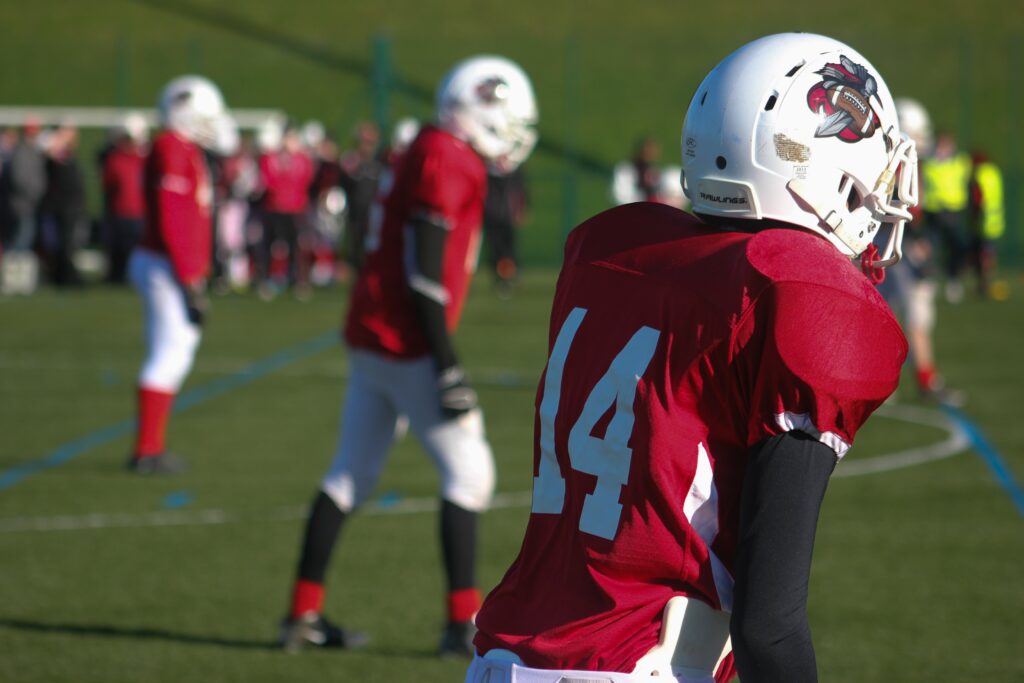Many people have a deep appreciation and passion for the sport of college football. With the passage of each year, new regulations and technology are included to improve the overall experience of playing the game. In recent years, one of the innovations that have been introduced is the usage of radio helmets for football players. This is one of the examples of how technology has advanced. The use of radio helmets has been implemented specifically for quarterbacks to enhance communication between the coaching staff and the player. Nonetheless, the issue remains: do quarterbacks in college football have radios installed in their helmets? Let us know Do College Quarterbacks Have Radios In Their Helmets?

It is against the rules for quarterbacks to wear radios in their helmets while playing collegiate football. The National Collegiate Athletic Association (NCAA) does not permit its players to use electronic communication devices while they are competing in NCAA-sanctioned games. The purpose of this regulation is to ensure that everyone is treated fairly and to stop any one team from having an unfair edge over their competitors.
The NCAA’s Regulations Regarding Communication
The goals of the rules that the NCAA has established regarding communication between coaches and players are to ensure that the game is played fairly and that all teams have an equal opportunity to be successful. The rulebook for the NCAA states that coaches are not permitted to use any electronic device, including radios installed in players’ helmets, to communicate with their players while the game is in progress. Not only quarterbacks but every player on the field is included in this statement.
The installation of radios in helmets in the first place
The technology known as radio helmets has been utilized in the sport of professional football for quite some time. Radio helmets have been designed to facilitate communication between the coaching staff and the players who are playing the game. This is especially helpful for quarterbacks since it enables them to communicate with their coaches and get instructions without having to leave the huddle. The usage of radio helmets can also help to improve the speed of play because it enables players to hear instructions more rapidly and continue with their plays without any delays.
Reason for declining the permission for college quarterbacks to wear radios in their helmets
The National Collegiate Athletic Association (NCAA) has a policy that prohibits the use of radios in helmets to uphold its commitment to fair play and prevent any team from gaining an undue advantage. The game of college football is designed to be played on a level playing field, and the use of electronic communication devices would go counter to this fundamental tenet of the sport. In addition to this, college football provides young athletes with the opportunity to gain experience and hone their skills. The National Collegiate Athletic Association (NCAA) thinks that if players were allowed to use electronic communication devices during games, it would hinder their ability to develop the communication skills necessary for them to become effective football players.
Situations in which this rule is not applicable
The general rule that electronic communication devices are not allowed in college football does, however, have a few exceptions. For instance, coaches are permitted to communicate with quarterbacks using signs and signals when they are on the sideline during a game. In addition, athletes who have been sidelined due to injury or who have been replaced by a substitute are permitted to utilize electronic communication devices to maintain contact with the coaching staff. On the other hand, instances like these don’t come up very often, and the NCAA keeps a tight eye on how athletes utilize their various technological communication devices.
The Usage of Radios in Professional Football
Radios are commonly utilized in helmets in professional football, even though they are not permitted in college football. During games played in the National Football League (NFL), quarterbacks are permitted to wear radios in their helmets so that they can communicate with their coaches. This makes it possible for teams to make modifications more quickly and effectively, which can be very helpful in noisy circumstances.
Conclusion
To summarize, radios are not permitted to be worn inside collegiate quarterbacks’ helmets at any time. This rule is in place to ensure that everyone gets a fair shot at winning and to stop any one team from having an unfair edge over its rivals. Even though the use of electronic communication devices is permitted in the National Football League (NFL), the NCAA thinks that college football should be played on a level playing field. The enjoyment of playing college football is enhanced by this rule, even though it may restrict the quarterbacks’ ability to communicate with their teammates.
FAQs
- Is it possible for coaches to talk to quarterbacks while the game is going on?
A. The answer is yes, coaches can talk to the quarterbacks even when the game is in progress. They often communicate plays by using signs and signals that are given from the sideline.
- Does the rule prohibiting the use of electronic communication devices have any exemptions?
A. The answer is yes, there are some deviations from the general rule. A player who has been injured or who has been replaced by a substitute, for instance, may employ electronic communication devices to communicate with the coaches.
- When playing professional football, do quarterbacks have radios installed in their helmets?
A. The answer to your question is yes, quarterbacks in professional football are allowed to have radios installed in their helmets so that they may communicate with the coaching staff.
